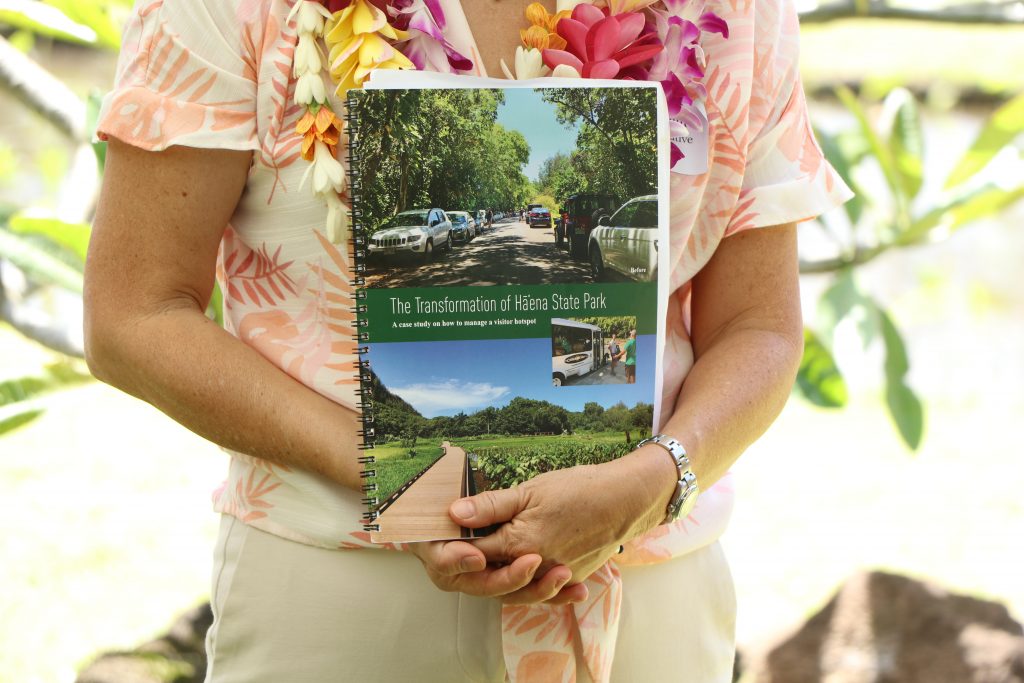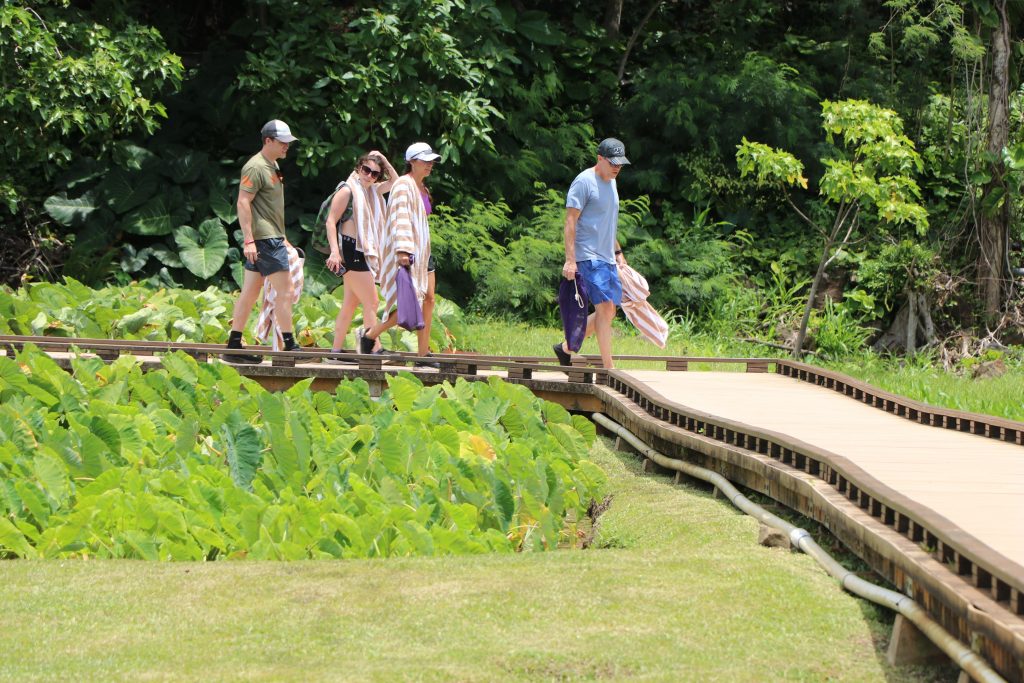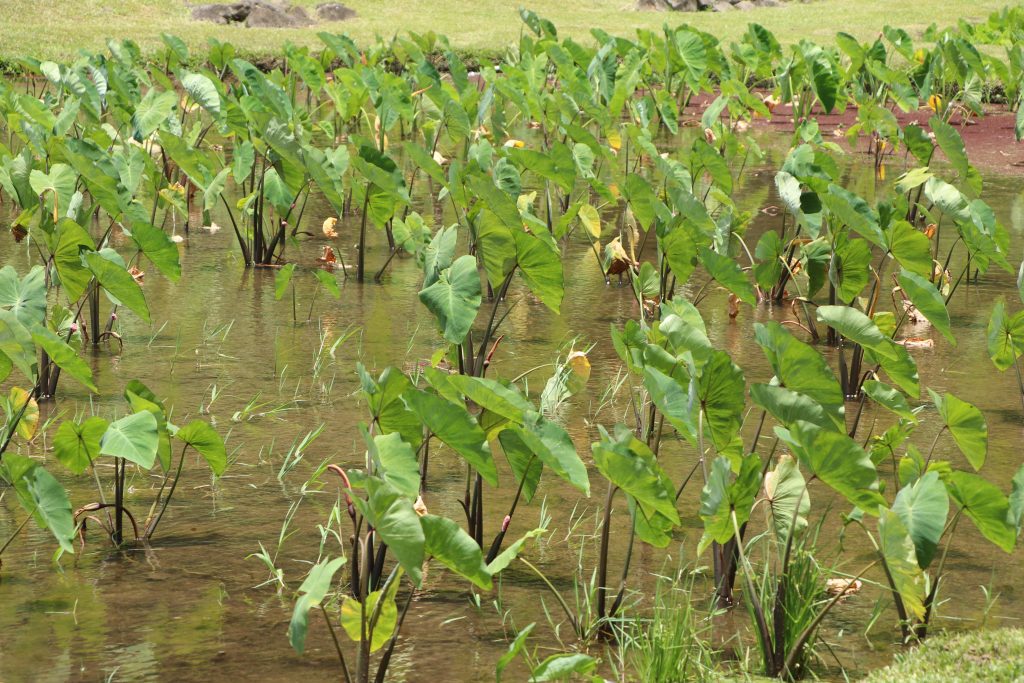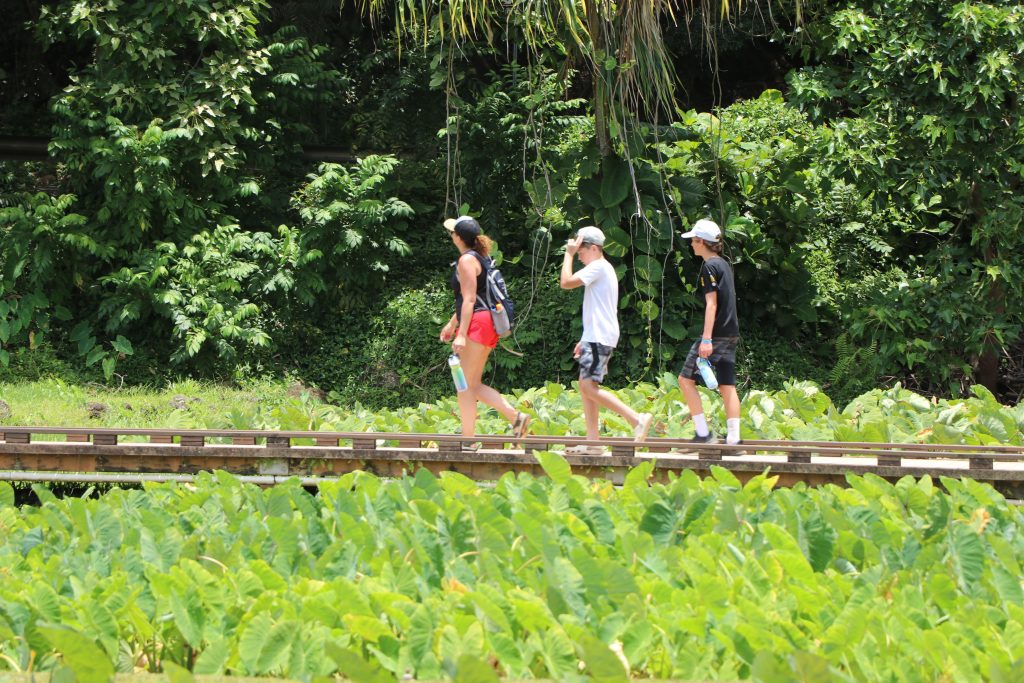Case study unveiled on community-led management of Hawaiʻi State Parks
Following the signing of a bill by Governor Josh Green, M.D., facilitating the continued community-based management of the 65-acre Hā‘ena State Park, a case study on how the community worked together with government and the visitor industry to manage a destination hotspot was unveiled.
“The Transformation of Hā‘ena State Park,” is described as a comprehensive playbook that details how this once overcrowded, overtaxed, and over-loved park – literally at the end of the road on Kauaʻi’s north shore, has experienced a complete makeover.
This has resulted in controls on the numbers of visitors each day, the transportation of most park visitors by shuttle from Hanalei leading to fewer traffic and parking issues and opened-up access for Hawaiʻi residents. The desired and achieved end result has made Hā‘ena and the adjoining Nāpali Coast State Wilderness Park cleaner, better-managed, safer, and much more enjoyable to visit, according to a state Department of Land and Natural Resources news release.
DLNR Division of State Parks Assistant Administrator Alan Carpenter, other state officials, and community members worked for several years on the Hā‘ena State Park Master Plan Implementation Case Study Committee. It produced the 63-page playbook, which is intended to guide other communities being pressured by over-visitation at state park hotspots nearby.
Carpenter said, “The Hā‘ena experience is an outstanding example of regenerative tourism and a model for destination management. The reimagining of this park was accelerated by serious flooding in 2018, which forced DSP to close Hā‘ena for more than a year. This pause provided the time to really drill down and figure out what is the best way to protect and preserve the natural and cultural features of the area, while still allowing controlled visitation.”
The guidebook goes into great detail about:
- The Place
- The Problems/Solutions
- Foundation for Success
- Lessons Learned
- Our Work Ahead
Chipper Wichman, a founding board member of Hui Maka‘āinana o Makana, the community group at the forefront of Hā‘ena’s transformation, wrote, “Don’t give up – be prepared for a long journey. There are no quick fixes to a problem that has been decades in the making. This is an ideal time to become active and get involved as the Hawai‘i Tourism Authority Destination Management Action Plans are all in line with helping communities begin to find solutions. Keep in mind that the challenges and problems you are facing are the same other communities are facing across the state. Because of this we have a collective voice that can help to direct change much more than just one small community can. Cultivate deep and lasting relationships with your local legislators and state and county agencies.”
That’s exactly what happened with the case study committee, which included State Representative Nadine Nakamura, who represents Kaua‘i’s north shore. She writes about the outcomes that make her the proudest.
“I’m most proud of the fact that local residents are returning to enjoy Hā‘ena State Park. It’s now a beautiful, peaceful experience to visit. This project is employing 35 staff members, 21 of whom live on the north shore, who work as parking attendants, shuttle drivers, park rangers, laborers, and administrators. This is community-based economic development at its finest. It’s also a model for regenerative tourism, one that preserves our sacred cultural and natural resources for future generations,” said Rep. Nakamura.
Nakamura’s advice for other “hotspot” communities, “As you can see from this Hā‘ena State Park case study, this was not an easy journey to undertake. Sometimes I felt we were going around in circles brainstorming solutions. But keep your eye on your strategic goals and your vision.”
DSP Administrator Curt Cottrell said in conclusion, “Regardless of great ideas and written pages, this works because of the trust and mutual respect forged between government and community through years of interaction. While it certainly did not happen overnight, we believe the grueling effort put into this park will compress the timeframe to create similar solutions elsewhere.”


















